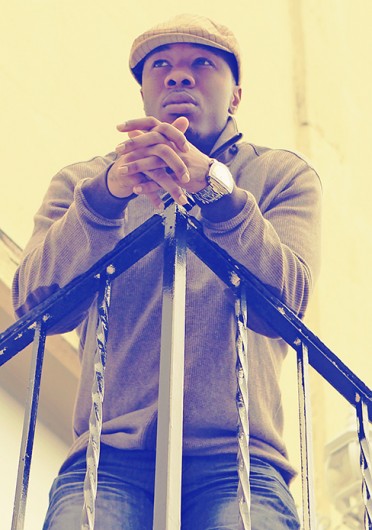
Chukwuemeka Onyejekwe, known by his stage name Mekka Don, released his debut album, ‘The Dream Goes On,’ March 4.
Credit: Courtesy of Viswant Korrapati
Ohio State alumnus Chukwuemeka Onyejekwe went from practicing law in New York to raising more than $20,000 for his first official album.
On March 4, the artist, who goes by Mekka Don, released his debut album “The Dream Goes On,” which chronicles his life story and aims to inspire others to follow their dreams.
“The album represents my story, my family’s perspective and paying my dues. It’s also about my perspective on how to be successful. I want it to be inspirational for people to fight for a dream and have the passion and to get there,” he said.
Onyejekwe said the title song would make the greatest connection with listeners.
“‘The Dream Goes On,’ I expect to get a lot of reactions, particularly because of the quality and production of it, and also the story and lyrics of it is real and people can relate to it,” Onyejekwe said.
Prior to his new album, Onyejekwe released “Let’s Go (O-H-I-O),” a single that was influenced by former OSU President E. Gordon Gee and was played during the 2012 home football games. The following season, Onyejekwe then wrote the song “Juice,” based on football coach Urban Meyers’ mantra — “bring the juice” — which became an official OSU licensed product and was also played at home football games this past season.
From a young age, music was a passion for Onyejekwe.
His older sister Nwando Olayiwola, a doctor in San Francisco, said via email that Onyejekwe “has had a very sincere and diverse passion for music since he was a child. This included singing and emulating musicians, dancing and playing the drums in a band with his older brother and cousin.”
At a certain point, music became too big of an interest to be covered up, Onyejekwe said.
Before hip-hop became a full-time gig for Onyejekwe, he received a political science degree from OSU, where his parents worked as professors. He then went on to work as an attorney for a firm that dealt with corporate litigation, Weil, Gotshal & Manges in New York City, earning $200,000 yearly.
Only a year into his law career, Onyejekwe said he built up courage to walk over to his boss’s office — describing it as “a movie scene” — to let him know he had decided to leave the firm to pursue music.
“He said, ‘One day I hope you’re one of our clients,’ and I was so grateful at that response. I walked back to my office, packed my stuff and it was a wrap.”
A year or so later, Onyejekwe said he connected with freshmen year hall-mate Viswant Korrapati, now his manager and business partner, to pursue music full time.
At first, the two partners didn’t know how to go about financing “The Dream Goes On” until a friend suggested Indiegogo.com.
“We asked ourselves how we were going to pay for this thing, and that’s when we started hearing about crowdfunding. Basically a friend of ours advocated for crowdfunding,” Korrapati said.
Indiegogo.com is an online platform for artists to seek funds from the public for their project. The artist doesn’t receive the funds in full, as a certain percentage goes to the website for its usage. The contributors receive special perks from the artists for their donations.
“Mekka was trying to convince me of it. I was scared. I was like, ‘I don’t want us to only raise $500.’ There’s a risk in crowdfunding because everything is public. I knew we had fans but I didn’t know how much money they would invest in us,” Korrapati said.
Their campaign on Indiegogo.com lasted from Jan. 20 to Feb. 24 with an initial goal of $12,500, which they exceeded by raising $21,040 “within the first two weeks of the campaign,” Onyejekwe said.
Korrapati said the budget was allocated to the making of the album, marketing and music videos.
“We are hoping and we believe that, all that work we put into and the fact that we were able to raise $20,000, the album will sell, that we will get booked for performances, music will be licensed, and all our other products will sell,” Korrapati said.
Onyejekwe said he knew the risks of quitting his law career to pursue music, but his passion is what kept him assure of his decision.
“I knew this is what I wanted to do, and it was all about going after it and doing it,” Onyejekwe said. “ It was the best decision I’ve ever made.”


